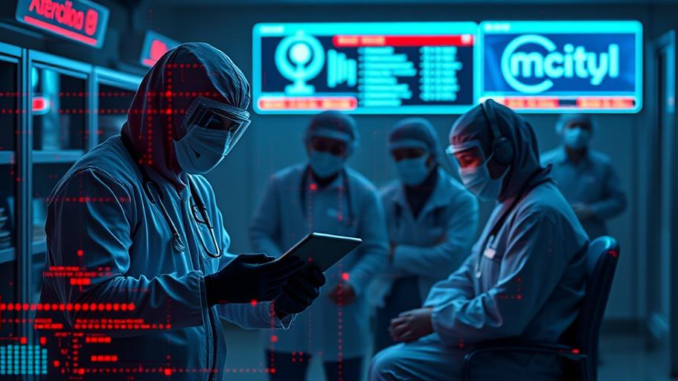
Summary
A ransomware attack on a London pathology service provider forced hospitals to cancel procedures, including cancer treatments. The hackers subsequently published stolen patient data online, highlighting the vulnerability of healthcare systems to cyberattacks and the urgent need for robust cybersecurity measures.
Safeguard patient information with TrueNASs self-healing data technology.
Main Story
We’re living in a digital world, that’s for sure. And while technology’s brought some incredible advancements to healthcare, it’s also unlocked a whole new world of potential problems, hasn’t it? I mean, look at what happened in London just last month.
Back in June 2024, the London healthcare system got hit hard when Synnovis, a key pathology service provider for a bunch of major hospitals, was targeted by ransomware. Can you imagine the chaos? Over 1,100 procedures had to be cancelled, including nearly 200 cancer-related operations. It’s just awful. The situation went from bad to worse when the cybercriminal group Qilin decided to publish stolen patient data online after their ransom demands weren’t met. It really highlights the growing threat of cyberattacks against healthcare, and just how devastating the consequences can be for patients, their data, and well, public trust in the system.
The thing is, the attack on Synnovis created this ripple effect, impacting some of the most prominent hospitals in South East London. Guy’s and St Thomas’ NHS Foundation Trust, King’s College Hospital NHS Foundation Trust…they were all affected. They had to declare a critical incident because they were struggling to cope with the disruption to essential pathology services. It spread outwards too, causing significant delays and operational challenges across other healthcare facilities and primary care services. And those hundreds of cancelled procedures? The cancer treatments especially? It paints a pretty grim picture of what these attacks can actually do. Because when critical care is delayed, the consequences can be life-altering. You know, that’s really what’s at stake here.
Then, to make matters worse, that stolen patient data ended up being published online. And that, in turn, created another layer of problems. Not only did it compromise individuals’ privacy and security, but it also eroded public trust. I mean, who’s going to feel safe sharing their medical information if they know it could end up on the dark web? The data breach included super sensitive stuff too. Names, birth dates, Social Security numbers, medical records, health insurance details…all exposed. It’s a harsh reminder of how important robust data protection measures really are, you know, we simply must prioritise cybersecurity.
And look, this wasn’t some isolated incident, either. Healthcare institutions have become increasingly attractive targets for cyberattacks over the past few years. The interconnected nature of medical devices, electronic health records, and other digital systems? Well, it creates tons of entry points for hackers. Then there’s the sensitive nature of patient data, which makes healthcare a lucrative target for ransomware attacks. Many healthcare facilities operate with limited resources and outdated systems. I remember reading how the American Hospital Association (AHA) likened ransomware attacks that cause a suspension of patient care to mass-casualty terrorist attacks. Quite a statement, right, but it really drives home the severity of these incidents.
So, what can be done? Well, it starts with increased investment in cybersecurity within the healthcare sector. Hospitals and healthcare providers need to prioritize implementing strong security measures. This includes regular software updates, staff training on cybersecurity best practices, and, crucially, incident response planning. Collaboration between healthcare institutions, government agencies, and cybersecurity experts is also essential to effectively combat these evolving threats. In short, the incident in London serves as a major wake-up call for the entire healthcare industry to strengthen its defenses and protect patient data. As healthcare continues to become more and more digitized, proactive cybersecurity measures are, without a doubt, essential to maintaining patient safety, privacy, and public trust. It’s the only way forward, if you ask me.


The London attack highlights the urgent need for robust incident response planning in healthcare. What strategies can organizations implement to rapidly restore services and protect patient data integrity in the immediate aftermath of a ransomware attack, minimizing disruption to critical care?
That’s a great point! Incident response planning is absolutely critical. Exploring strategies like isolating affected systems, having readily available data backups, and establishing clear communication channels are key. What tools or frameworks do you think are most effective for rapid service restoration?
Editor: MedTechNews.Uk
Thank you to our Sponsor Esdebe